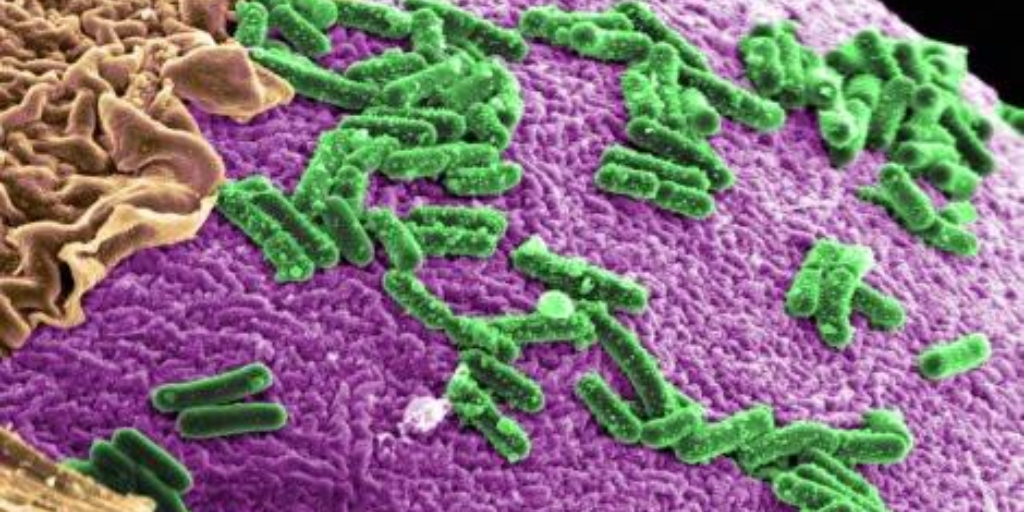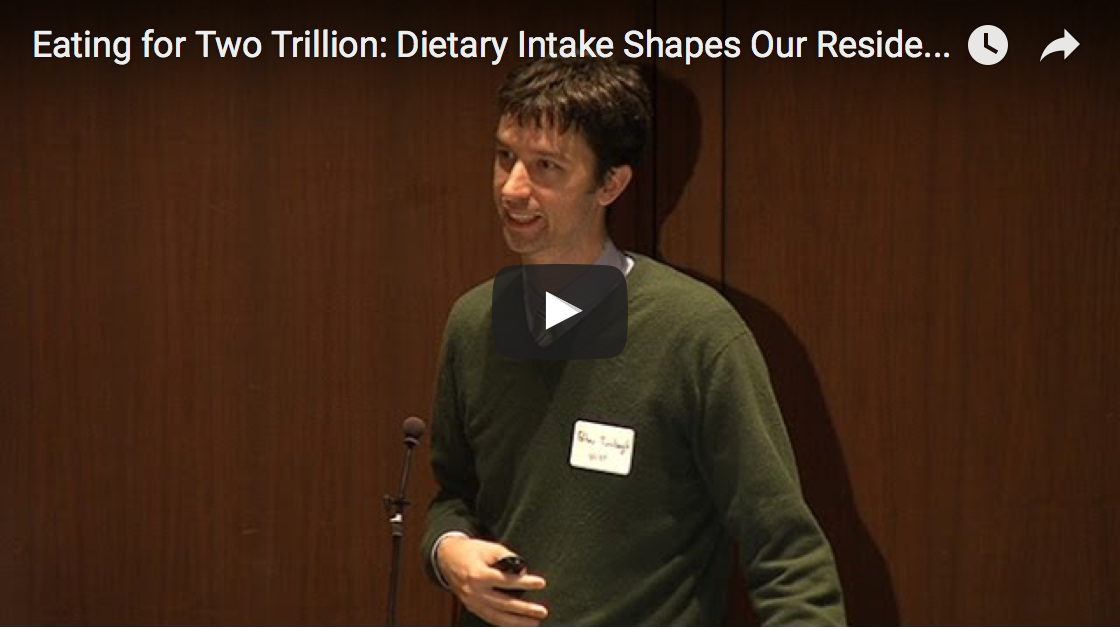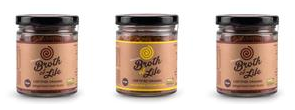Offer
Provide additional details about the offer you're running.

Written by Nicholas Weiler for University of California San Francisco.
Trillions of bacteria surround us, permeate us, and bind our bodies together. They affect our immune systems and our brains, they shift and change with our diet, and some researchers suspect that these microbial multitudes may be an important link between our modern lifestyle and ongoing epidemics of diseases such as asthma, obesity, and diabetes.
Leading microbiome researchers recently came to UC San Francisco to share the newest insights about how improving our relationship with our bodies’ microbial ecosystems could be the next big breakthrough in treating metabolic disease. One major theme of the symposium – hosted by the University of California Sugar, Stress, Environment, and Weight (SSEW) Center – was the question of whether the troubling modern epidemic of metabolic disease may arise in part because our civilization has not been kind to our microbes.
“In Western industrialized nations, we have dramatically changed our interaction with microbes in last several decades,” said Susan Lynch, PhD, who studies links between the microbiome and chronic inflammatory diseases at UCSF. “Particularly in urbanized areas, we have less contact with the soil and with animals. We have changed our diets dramatically and waged war on our microbes with antibiotics.”
The idea that changes in modern lifestyle have increased our risk of disease by altering our microbiomes is still fundamentally hypothetical, but animal studies do suggest that altering the microbiome can have significant physiological effects. For instance, when researchers give lean mice gut microbial transplants from either a skinny donor or an obese donor, the ones that received an “obese” microbiome began to put on excess body fat.
 Watch the Symposium
Watch the SymposiumUC-TV features recordings of each speaker presentation at "Gut Feelings: The Microbiome, the Mind and Metabolic Health."
Many of the environmental factors that researchers worry may be harming our microbiomes are difficult to change, but the symposium speakers emphasized that there’s one way we can all affect our microbes immediately: our diet.
The foods we eat are thought to give competitive advantages to certain species of microbes in our gut, especially those that digest complex carbohydrates, according to UCSF microbiologist Peter Turnbaugh, PhD. “As a result,” he said, “your gut microbes are what you eat.”
In a recent study, Turnbaugh and his colleagues placed human volunteers on either a plant-based or animal-based diet and found that eating only meat, eggs and cheeses for just five days resulted in reduced numbers of many of the volunteers’ fiber-digesting bacteria.
Other studies have found that high-fat diets promote the growth of bacteria that may cause inflammatory bowel disease. In mice, such so-called “Western” diets significantly change microbial diversity throughout the digestive tract within just a day.
However, Turnbaugh cautioned that firm links between diet, microbes and disease have yet to be proven. “Many diseases have recently been linked to the microbiome, including metabolic syndrome, malnutrition, inflammatory bowel disease and even cancer,” he said. “The next step will be to test whether these diet-dependent changes we see in the microbiome are actually contributing to these diseases.”
In the meantime, researchers expressed hope that our growing insight into how our diets shape our microbiomes could be used to design simple dietary interventions to improve our health.
“The microbiome is not static, but malleable,” said UCSF pediatric endocrinologist Robert Lustig, MD, MSL, who recently demonstrated that just 10 days without sugar could significantly improve metabolic health in children. “This growing body of research suggests that what you eat could change your gut microbiome, and therefore change your risk of disease,” he said.
“It turns out there are many opportunities to change the microbiome and potentially improve your health,” said Elissa Epel, PhD, director of SSEW and the UCSF Center for Obesity, Assessment, Study and Treatment (COAST), which co-sponsored the symposium. “As our understanding grows, the invisible world of the microbiome is becoming tangible.”
Following December’s symposium, Epel and her SSEW Center colleagues announced plans to lobby their home universities to adopt bans on sugar-sweetened beverages, such as the one that has been in place at UCSF since July 2015.
“As we learn more and more about how what we eat affects our health,” Epel said, “We agreed that it’s time for us all to take action in our own communities.”


